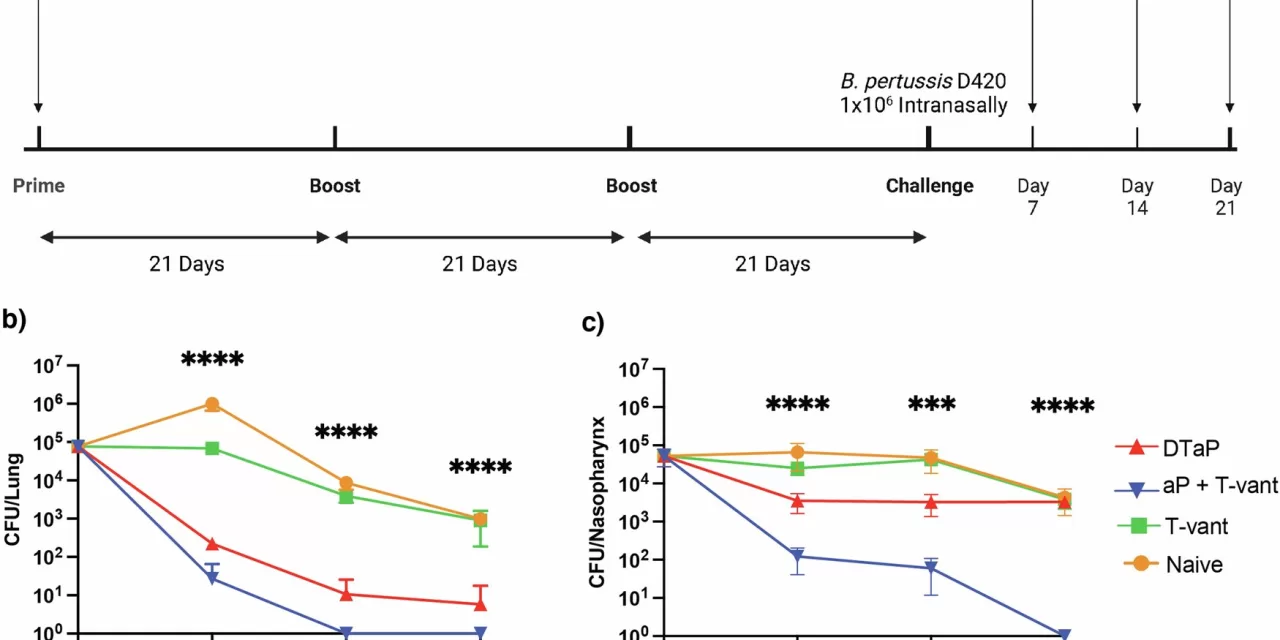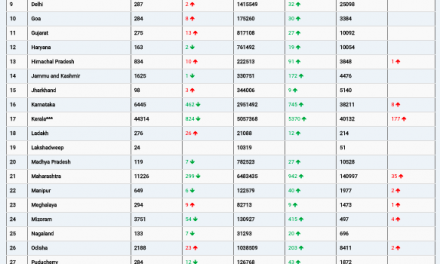As whooping cough cases surge across the United States, researchers at Tulane University have developed a groundbreaking nasal vaccine that could curb the spread of the highly contagious respiratory disease. The vaccine, which incorporates an innovative adjuvant known as T-vant, has demonstrated remarkable results in preclinical trials.
Current pertussis vaccines, though effective at preventing severe illness caused by Bordetella pertussis, do not stop the bacteria from residing in the upper respiratory tract, allowing vaccinated individuals to unwittingly spread the disease. The new nasal vaccine aims to bridge this gap.
In a study published in npj Vaccines, mice vaccinated intranasally with the T-vant-enhanced formula showed no detectable bacteria in their lungs or nasopharynx—three weeks after exposure. In contrast, mice that received traditional intramuscular vaccines still harbored the bacteria in their upper respiratory tract.
“By developing a vaccine that can not only protect individuals but also prevent transmission, we hope to improve on existing vaccines and limit the spread of whooping cough in communities,” said Dr. Lisa Morici, lead author and professor of microbiology and immunology at Tulane University School of Medicine.
The T-vant adjuvant is derived from bacterial outer membrane vesicles, which are known to stimulate immune responses. The study revealed that T-vant activated mucosal immunity, a critical defense mechanism in the respiratory tract, effectively blocking the bacteria from colonizing. Importantly, no adverse effects were observed on lung tissue following immunization, underscoring the vaccine’s safety.
This breakthrough comes at a critical time. The Centers for Disease Control and Prevention (CDC) recently reported a five-fold increase in whooping cough cases in the U.S. compared to last year. Globally, the disease affects approximately 24 million people annually, disproportionately impacting infants and immunocompromised individuals.
Dr. James McLachlan, co-author and associate professor of microbiology and immunology at Tulane, emphasized the potential of the new vaccine. “These findings underscore the need for enhanced vaccines that can do more than just protect the individual. We need vaccines that can effectively stop the bacteria from spreading within communities, and this new approach offers an encouraging step in that direction.”
If the vaccine’s efficacy and safety are confirmed in human trials, it could pave the way for a significant reduction in whooping cough cases worldwide and potentially eliminate the disease in the future.
For more details, see the study: Michelle Galeas-Pena et al, A novel outer membrane vesicle adjuvant improves vaccine protection against Bordetella pertussis, npj Vaccines (2024). DOI: 10.1038/s41541-024-00990-1.












